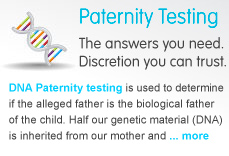






Hepatitis is an inflammation (greek - itis) of the liver (greek - hepar) due to the presence of inflammatory cells in the tissue of the organ. The condition can heal on its own or can cause severe scarring of the organ. Although sometimes symptomatic, it may go un-noticed unless screened. It is a result of a group of viruses (A, B, C, D and E), but can also be a result of toxins, some organic solvents and other infections. Acute alcohol consumption can also result in this condition.
Hepatitis caused by viral means is the most common cause of the disease. Although, they all are classified under hepatitis, they are not entirely related.
Hepatitis A
Hepatitis A is cause by a virus transmitted through the fecal-oral route. It is often a result of contaminated food such as consumption of raw sea food, drinking contaminated water or personal contact. This type only causes an acute form of hepatitis and does not have a chronic stage, since the immune system is able to make antibodies after the first infection and will produce immunity against future infections.
Hepatitis B
Hepatitis B is cause by a hepadnavirus that can cause both acute and chronic hepatitis. Chronic hepatitis can form in 15% of adults who are unable to eliminate the virus after and initial infection. Methods of infection usually include: blood transfusions, tattoos, sexual interaction (may or may not include intercourse), or via breast feeding. Blood contact via syringe sharing, shaving accessories and touching wounds of an infected person may also give rise to Hepatitis B infection.
Chronic hepatitis, if gone untreated may lead to death and is the result of nearly a million deaths per year worldwide. It is normally highly recommended that routine screening for such a disease is performed.
Hepatitis C
Hepatitis C can be transmitted through contact with blood (including through sexual contact) and can also cross the placenta. It very commonly leads to chronic hepatitis culminating to cirrhosis (loss of liver function) in some people. It is not easily detected as it is able to remain asymptomatic for decades. Hepatitis C infected people, are more prone to the other types of viruses and should thus be immunized against Hepatitis B and Hepatitis A, while avoiding alcohol. Failure to this could lead to severe hepatitis and eventual death.
Hepatitis D
The Hepatitis D virus can only propagate in the presence of the hepatitis B virus.
Hepatitis E
The Hepatitis E virus produces symmptoms similar to Hepatitis A, but is mostly prevalent in Indian subcontinet. MLSBioDNA Ltd can offer testing by real time PCR for:
- Hepatitis C (HCV)
- Hepatitis B (HBV)
Due to the fact that both of the above are the serious types from all the rest of the hepatitides. Both qualitative and quantitative testing can be performed, by Real Time PCR Technology, which is able to detect infection within days or weeks, unlike ELISA which is rarely conclusive and may not detect the infection unless three months have elapsed. Unfortunately the latter is normally preferred by several medical practitioners as it is cheaper, allowing for more personal profits. It is recommended that you insist with your doctor or medical practitioner to carry out such screening via PCR techniques.
Sample Requirement
- 5mL EDTA blood
- 1mL EDTA blood (for paediatrics only)
Alternatively 2 mL serum (frozen). Since HCV is an RNA viruses it is very important
that samples are centrifuged and frozen as soon as possible after collection and maintained frozen at all times even during transport in order to maintain the
integrity of RNA.
Heparinised blood is NOT accepted.
Turnaround Time
- 3 working days
- Results are issued every Thursday
- Last accepted samples by Tuesday noon










